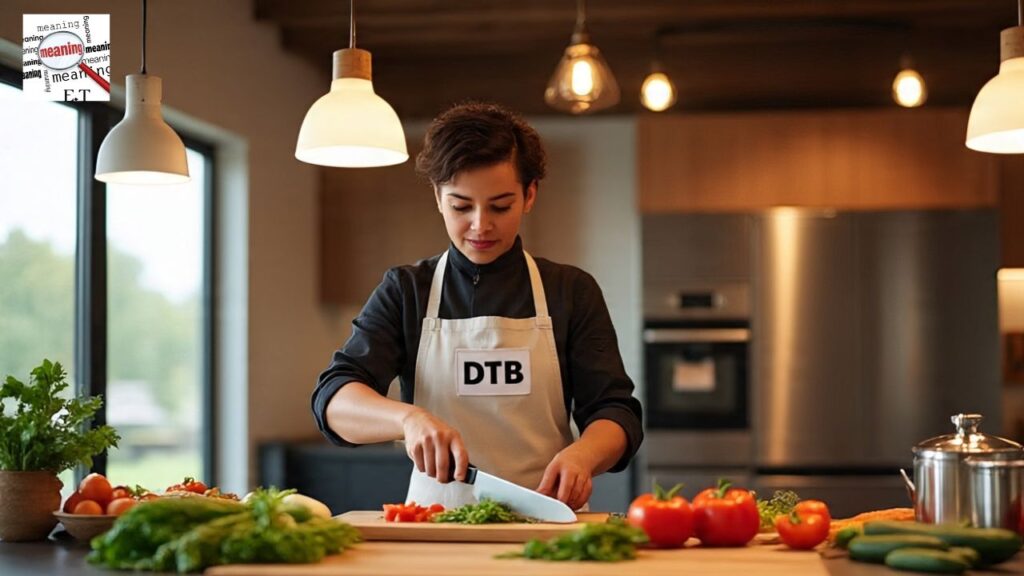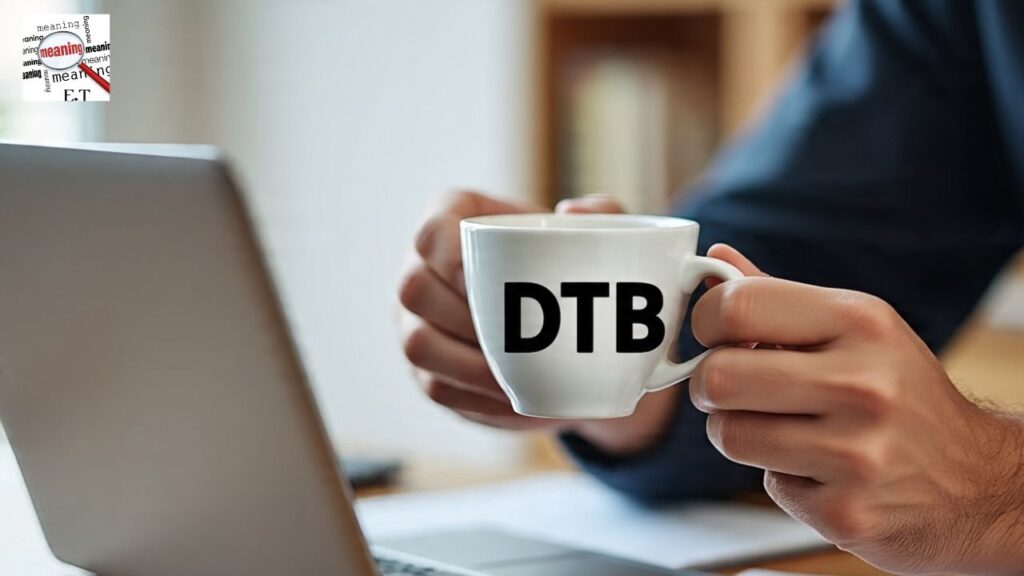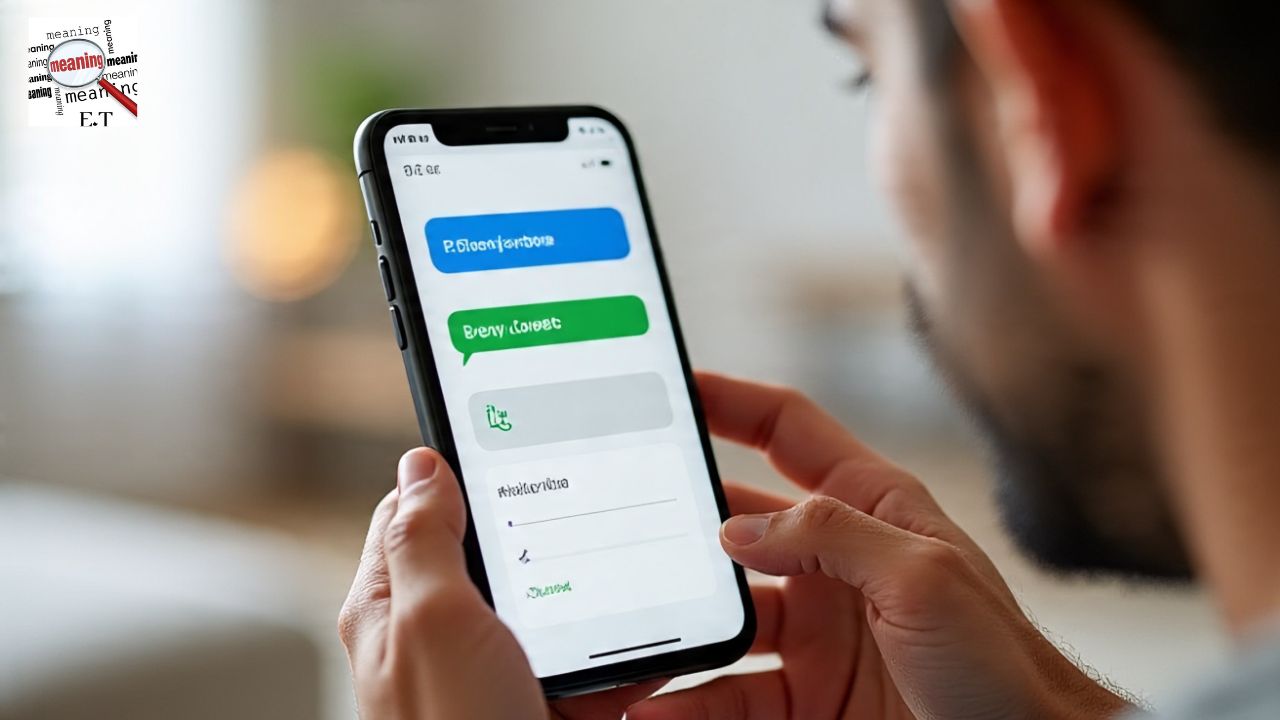Dtb meaning is a common slang phrase that people use mostly in texting and on social media. The most popular meaning is “Don’t Trust Boys,” often said in a playful or cautionary way. It reflects attitude, independence, or sometimes frustration in relationships.
DTB Meaning: What Does It Mean?
DTB is a trending slang term that stands for “Don’t Trust Boys”. It’s mostly used in texting and online chats to express caution or attitude in relationships. While it sounds playful, people often use it to highlight independence and confidence.
DTB Examples in Conversations, Texting, and Social Posts
You might see DTB in casual conversations like, “I’m done with him, DTB.” On social media, it often appears in captions, comments, or even hashtags. Friends sometimes use it jokingly, while others drop it in a serious tone.
More About DTB Terminology
Though DTB mainly means “Don’t Trust Boys,” it isn’t always limited to that. Some people twist the phrase to fit their own context or even use it with a humorous touch. Like many slang terms, its meaning can shift with trends and situations.
When and How to Use DTB

DTB works best in informal chats, playful texts, or when posting on platforms like TikTok, Instagram, or Twitter. Use it to share your mood, make a statement, or join a trend. Just remember, it’s casual slang and not meant for formal settings.
How to Respond to DTB
If someone texts you “DTB,” your response depends on the context. You could agree playfully, laugh it off, or ask what they mean if you’re unsure. The key is to match their tone—keep it light if it’s a joke, or serious if it’s heartfelt.
Other Meanings of DTB
While DTB is most commonly known as “Don’t Trust Boys,” it can stand for other things too. In different contexts, it might mean “Down to Business” or “Don’t Text Back.” The meaning always depends on who’s using it and where.
Where Did DTB Come From?
DTB became popular through hip-hop culture and social media trends, especially in the last few years. Many artists used it in lyrics, which helped the term spread quickly. From music to memes, it grew into everyday online slang.
DTB Meaning in Different Contexts – Explained
In texting, DTB usually means relationship caution or independence. In business chats, it could mean “Down to Business,” focusing on work. On TikTok, it’s more of a trending phrase used in captions, jokes, or challenges.
How People Use DTB Today
Today, DTB is everywhere—from Instagram captions to viral TikTok sounds. People use it to share attitude, humor, or frustration in a catchy way. It’s short, simple, and instantly understood by those familiar with online slang.
DTB in TikTok
TikTok played a huge role in spreading DTB to a global audience. Many users include it in lip-sync videos, memes, and relationship skits. The phrase quickly became part of online culture and continues to trend in new ways.
DTB in Spanish
In Spanish conversations, DTB sometimes stands for “Dios Te Bendiga” (God Bless You). This shows how acronyms can change meanings across languages and cultures. So, context is key when figuring out what DTB really means.
How DTB is Used on Social Media

On social media, DTB is mostly used in hashtags, captions, and comments. It helps users express feelings quickly, whether joking around or making a bold statement. Its flexibility is what keeps it trending across platforms.
Why Do People Say DTB?
People often say DTB to show independence or warn against trusting too easily in relationships. It’s a quick way to express frustration or confidence without needing long explanations. For many, it’s also just a trendy phrase that adds attitude to their conversations.
Is DTB Just for Girls, or Can Anyone Use It?
Although DTB stands for “Don’t Trust Boys,” it’s not limited to girls. Anyone can use it to express caution, sarcasm, or humor. The phrase has become gender-neutral online, and its tone depends more on context than who is saying it.
DTB vs Other Popular Slang – What’s the Difference?
Unlike slang like “LMAO” or “LOL,” which show reactions, DTB carries a message about attitude and trust. It’s closer to phrases like “IDGAF” because it makes a statement rather than just expressing emotion. That’s why it stands out in conversations.
Common Mistakes People Make With DTB

A common mistake is assuming DTB always means “Don’t Trust Boys.” In reality, it has other meanings like “Down to Business” or “Don’t Text Back.” Another mistake is using it in serious or formal conversations where slang isn’t appropriate.
Will DTB Stay Popular or Fade Away?
Like many slang terms, DTB may fade as new trends take over. However, thanks to its use in music and TikTok, it might stick around longer than most. Whether it stays or goes, DTB has already left a strong mark on internet culture.
Frequently Asked Questions
What does DTB mean in texting?
DTB usually means “Don’t Trust Boys” in texting.
What is the full form of DTB in chat?
The full form is “Don’t Trust Boys,” but it can vary by context.
What does DTB mean on TikTok?
On TikTok, DTB is used as a trending slang meaning “Don’t Trust Boys.”
What does DTB mean on Instagram?
On Instagram, DTB is mostly used in captions or hashtags to show attitude.
Is DTB only for girls?
No, anyone can use DTB, though it’s often linked with relationship slang.
Can DTB mean something else?
Yes, it can also mean “Down to Business” or “Don’t Text Back.”
What does DTB mean in Spanish?
In Spanish, DTB can mean “Dios Te Bendiga” (God Bless You).
Where did DTB come from?
DTB became popular through hip-hop music and social media trends.
How do you reply to DTB in chat?
You can reply playfully, agree, or ask for clarification if unsure.
Is DTB still popular in 2025?
Yes, DTB is still popular on TikTok, Instagram, and online conversations.
Conclusion
DTB has become one of the most recognizable slang terms in modern texting and social media. While its main meaning is “Don’t Trust Boys,” it can also shift depending on context, culture, or even language.
People use it for humor, attitude, or self-expression, and its popularity continues to grow through TikTok, music, and online trends. Like any slang, its meaning may evolve with time, but for now, DTB remains a catchy phrase that defines online conversations and youth culture.









